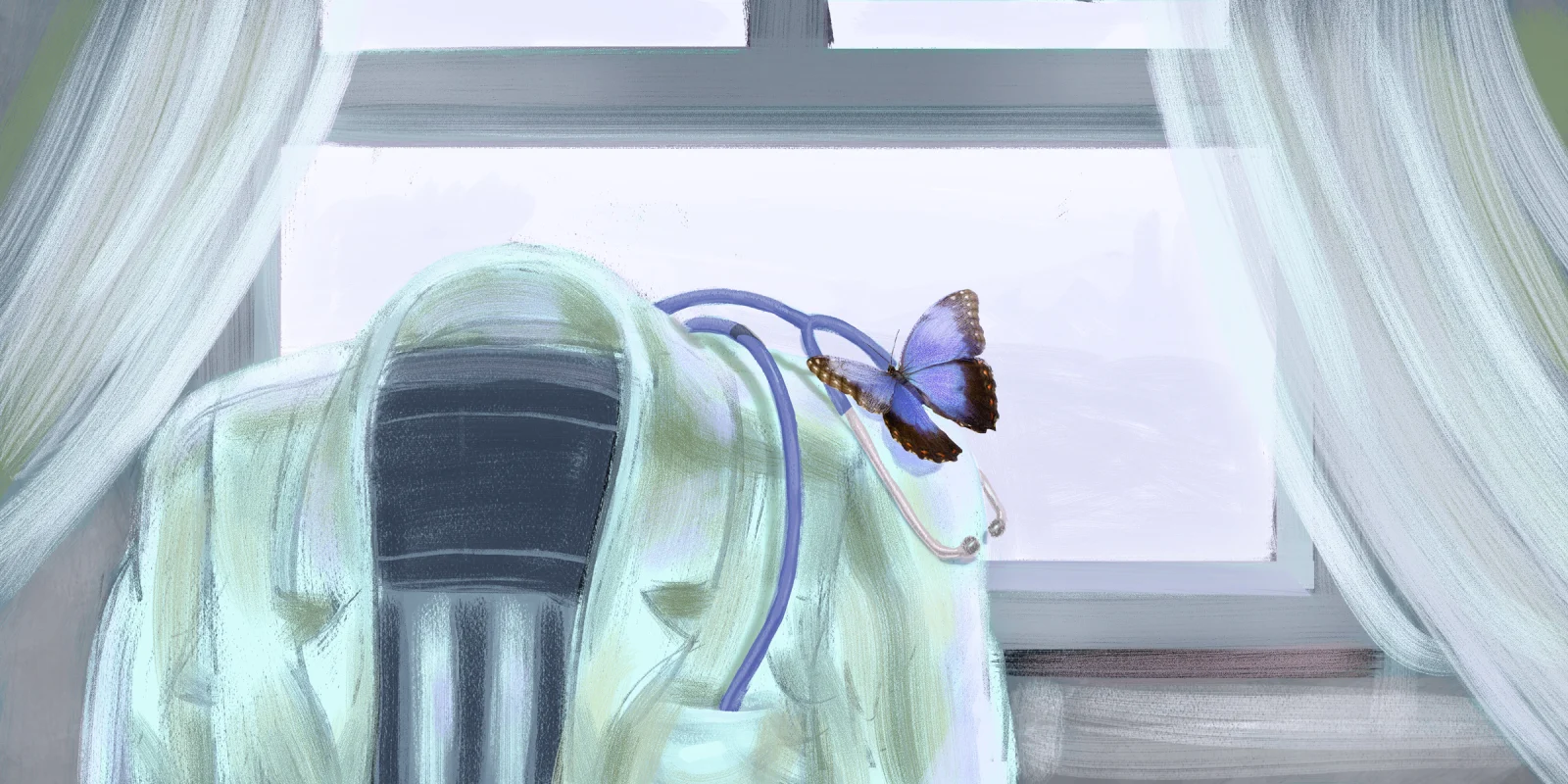A classmate had lost her grandmother during our third year of medical school, and she wanted to share about her experience on my podcast about first-time experiences during medical training. She told me that, as the sole medical trainee in her family, she was often tasked with translating the medical jargon that the doctors and nurses caring for her grandmother used. She was the medical point person. But she was also a grandchild, experiencing the loss of her grandmother as a human being. She straddled both worlds: a clinician-in-training and a family member.
At home, I was listening back to the recordings of my conversations with her when my sister came downstairs. She held her phone and looked at me, my parents, and brother. “Lolo is dying,” she said. Lolo is the Tagalog word for “grandfather.”
We were merged with a group call that connected several members of our extended family. Lolo was on the end of one phone call, and we could hear my cousin, a physician, reporting his vital signs. She was telling us he was in respiratory distress, that these were his final breaths. We were jolted from a peaceful Sunday afternoon into an emotionally overwhelming experience.
As members of my family prayed, my grandfather passed peacefully.
It felt a cruel irony to have been listening to recordings about losing a loved one, then suddenly be thrust into that experience myself. As an adult, I had known patients who had passed, but this loss felt vastly different. No amount of fixating on the details, pathophysiology, or management of my grandfather’s health conditions could obscure the fact that this was not another patient I had been caring for or learning from. This was my grandfather.
Given the constraints of the pandemic, it was not possible to hold funeral services, let alone visit the Philippines, where my grandfather had lived. To adapt to these limitations, my extended family, scattered across the globe, from the Philippines to California, gathered over Zoom to mourn the loss of my grandfather.
For several nights in a row, dozens of our extended family convened, prayed, and shared memories and stories. We played games, such as answering trivia questions about my grandfather; sang songs he loved; and danced on those nightly calls. One of my aunts, the family historian, presented how everyone knew each other by outlining our big family tree. We even had a recurring talent show, where a few grandchildren each night would play an instrument or share a piece of their writing.
While those nightly Zoom meetings were something to look forward to, grief during a pandemic has been challenging to navigate, and my experience with loss has been further complicated by my position as a rising fourth-year medical student. Similarly, my sister, an intern, was starting residency with the wounds of loss still fresh. She and I often spoke about how challenging it was to juggle medical training and our grief. At any moment, it felt that a wave of emotion may inundate us. Where, in our schedules, did we have time to grieve?
We were able to persist because we were intentional about making time to process our grief. For several days, no matter how strapped for time we felt, we set aside an hour to talk or meet with family. I kept a record of my headspace by jotting down my thoughts in a journal. And I was especially adherent to daily rituals that gave me rest: I walked outside, enjoyed the summer weather, sat on park benches, and listened to music.
I found it helpful to seek the advice and counseling of an attending who had shared a similar experience. A pediatrician, specializing in palliative care, told me that to do our best work as physicians, we must find ways to fill ourselves up. Despite life’s challenges, we must strive to maintain joy and comfort as steady presences in our lives.
Hearing from extended family, I learned as much as I could about my grandfather. He was a land developer, philanthropist, and beloved father of 11 children. As the son of a physician, he deeply respected the practice of medicine, and he helped support my medical education. His name lives on as my middle name, Victorino, and as his grandson and namesake, I know I can honor him by making the most of my training to become the best physician I can be.
If you lost a relative while training or practicing, how did you make time to grieve? Memorialize your loved ones below.
Amador (“Tino”) Delamerced is a medical student at the Warren Alpert Medical School of Brown University. He is the producer of Firsts, a podcast series about first-time experiences during medical training. Tino is a 2021–2022 Doximity Op-Med Fellow.
Illustration by Jennifer Bogartz






